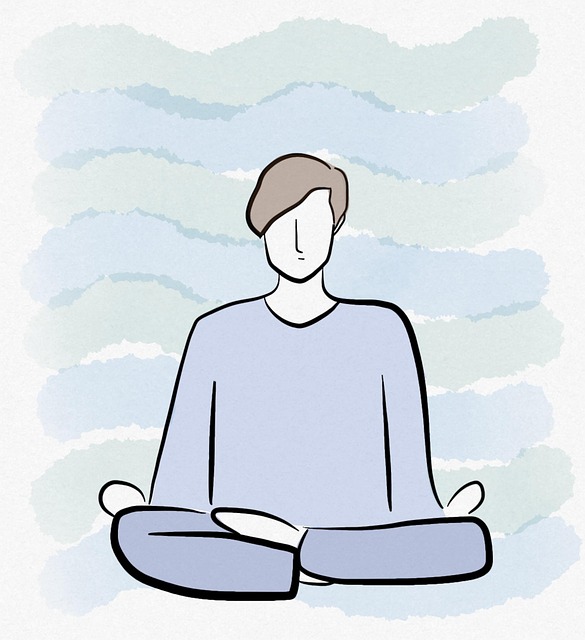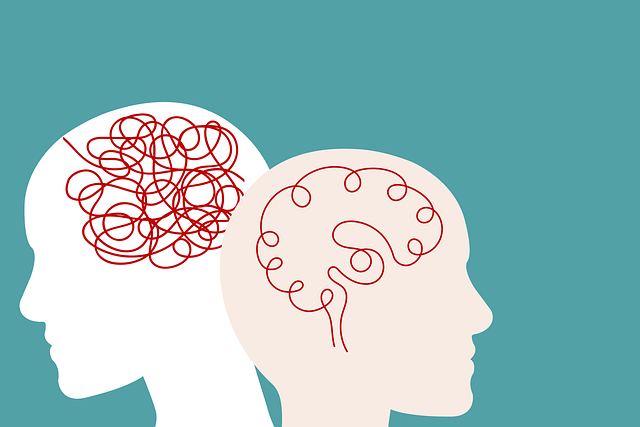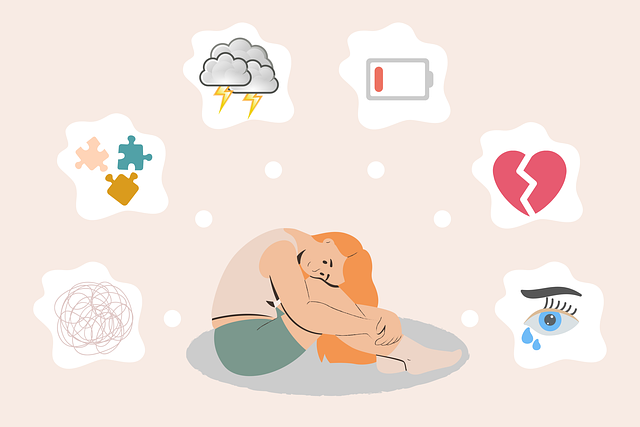Mental wellness is a dynamic aspect of overall health, vulnerable to issues like conduct disorders and stress-related disorders. Louisville Conduct Disorder Therapy addresses these through holistic approaches that integrate evidence-based practices with individual experiences, cultural sensitivity, and empathy building. A key tool in this therapy is journaling, which offers a safe space for emotional exploration, enhances self-awareness, and promotes mental wellness by releasing tensions and fostering open communication. Customizing a personal journaling space with comfort items and engaging in reflective questions can deepen the benefits of Louisville Conduct Disorder Therapy, making it an invaluable component of self-care practices alongside social skills training and healthcare provider cultural competency.
Unwind and reconnect with yourself through the transformative power of mental wellness journaling. This article guides you on a journey to explore emotional release and personal growth, offering insights into the impact of mental health and effective practices for enhancing your journaling routine. From understanding conduct disorder therapy in Louisville to creating a sanctuary for self-expression, discover techniques to unlock your mind’s potential. Unleash your emotions, gain clarity, and embark on a path to improved well-being.
- Understanding Mental Wellness and Its Impact
- The Power of Journaling for Emotional Release
- Louisville Conduct Disorder Therapy: A Holistic Approach
- Creating a Safe and Personalized Journaling Space
- Effective Techniques to Enhance Journaling Routine
Understanding Mental Wellness and Its Impact

Mental wellness is a vital aspect of overall health and well-being, encompassing our emotional, psychological, and social state. It influences how we think, feel, and act in various situations, impacting our relationships, work, and daily lives. Understanding mental wellness involves recognizing its dynamic nature and acknowledging that it can fluctuate over time. Louisville Conduct Disorder Therapy highlights the importance of addressing behavioral issues and promoting healthy coping mechanisms.
When mental wellness is compromised, it can lead to a range of challenges. Increased stress levels, for instance, are often linked to various mental health disorders and can significantly impact our ability to function. Effective self-care practices and stress reduction methods, such as mindfulness exercises or keeping a journal, can help individuals manage their mental wellness proactively. Additionally, communication strategies play a crucial role in seeking support, fostering connections, and promoting overall well-being.
The Power of Journaling for Emotional Release

Journaling is a powerful tool for emotional release and can be especially beneficial for individuals dealing with challenges like Louisville Conduct Disorder Therapy. By putting pen to paper, one can explore and express their feelings, thoughts, and experiences in a safe and private manner. This act of self-expression allows for increased self-awareness, enabling individuals to better understand their emotions and triggers.
Engaging in regular journaling practices facilitates mood management by providing an outlet for built-up tensions and negative feelings. It encourages folks to reflect on their day, identify sources of stress or joy, and gain a deeper sense of control over their emotional responses. Moreover, as part of a broader Mental Wellness Podcast Series Production, self-awareness exercises like journaling can be a valuable addition, fostering open dialogue about personal growth, resilience, and the pursuit of mental wellness.
Louisville Conduct Disorder Therapy: A Holistic Approach

Louisville Conduct Disorder Therapy takes a holistic approach to addressing this complex mental health issue. Instead of focusing solely on behavioral modifications, this method recognizes the interconnectedness of physical, emotional, and social well-being. By integrating evidence-based practices with a deep understanding of individual experiences, therapists create a safe space for clients to explore underlying causes and develop personalized coping strategies.
The process often involves Empathy Building Strategies, fostering strong therapeutic alliances that encourage open communication. Healthcare Provider Cultural Competency Training plays a vital role in ensuring culturally sensitive care, acknowledging the impact of societal factors like Mental Illness Stigma Reduction Efforts on individuals with conduct disorders. This comprehensive approach aims to empower clients to lead fulfilling lives by providing them with the tools to navigate challenges and promote long-term mental wellness.
Creating a Safe and Personalized Journaling Space

Creating a safe and personalized journaling space is an essential step in incorporating mental wellness practices into your routine, especially for those seeking Louisville Conduct Disorder Therapy. This sanctuary serves as a dedicated area where individuals can express themselves freely and explore their thoughts and emotions without judgment. Personalize your journal by choosing a location that feels comfortable and inspiring; it could be a quiet corner of your bedroom or a peaceful spot in your home office. Surround yourself with items that foster emotional well-being promotion techniques—a cozy blanket, inspiring quotes, or even plants can create a soothing ambiance.
Making this space truly yours adds to the therapeutic effect. Include items that represent your interests and passions; for instance, if you find solace in nature, keep a small potted plant nearby. This personalized touch encourages emotional expression and makes the journaling process more engaging. Remember, mental health awareness starts with creating an environment where individuals feel secure to confront their thoughts and embark on a journey of self-discovery.
Effective Techniques to Enhance Journaling Routine

Enhancing your journaling routine can significantly deepen the benefits of mental wellness exercises. One effective technique is incorporating reflective questions tailored to address specific aspects of your emotional well-being. For instance, asking “What triggered my stress today?” or “How did I feel when facing a challenging situation?” encourages self-awareness and helps identify patterns in thoughts and behaviors. This practice is particularly beneficial for individuals navigating conditions like Louisville Conduct Disorder Therapy, where understanding triggers and emotions plays a crucial role in recovery.
Moreover, integrating creative expression into your journaling can make the process more engaging and therapeutic. Drawing, writing poetry, or even sticking pictures that represent your mood can serve as powerful tools for mental illness stigma reduction efforts. This form of artistic self-expression allows you to communicate complex emotions that might be difficult to articulate through words alone. Additionally, it can foster a sense of accomplishment and provide an outlet for processing experiences, making journaling a regular part of your self-care routine, alongside social skills training or healthcare provider cultural competency training.
Mental wellness journaling is a powerful tool for emotional release and personal growth. As discussed, understanding mental wellness and its impact is crucial, while Louisville Conduct Disorder Therapy offers a holistic approach to addressing behavioral challenges. By creating a safe and personalized journaling space and employing effective techniques, individuals can enhance their mental health journey. Remember that consistent practice is key; delve into this therapeutic habit to transform your life, one entry at a time.














